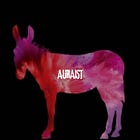The best-written recent literary fiction
Plus another of the best books on prose technique, and authors discuss internet prose.
Every week we identify the best-written works of fiction, speculative fiction, and nonfiction from recent releases and shortlists for major prizes. We also publish guides by their authors on prose technique.
On the last Friday of the month we publish for paid subscribers the best-written book of the month. Our next pick will be a work of Catalonian speculative fiction.
Recent releases
A most anticipated book: The New York Times, The Boston Globe, Seattle Times, Vulture, Esquire, Publishers Weekly, Lit Hub, AV Club, AARP.
Our first literary-fiction pick is here»
A New York Times Editor’s Choice Pick * One of LitHub’s Most Anticipated Books of 2025
Books on prose style
Probably the wittiest, most provocative, and best-written of all the guides. Read the opening pages here»
At the above links you’ll find:
The opening pages of our picks. Make up your own mind about the quality of the prose.
The full list of the books we considered.
Information about submitting to Auraist. If we publish your work, we’ll invite you to answer our questions on prose style. Your answers will be considered for inclusion in the published collection of these answers by many of the world’s best writers.
Between them, the Substacks we recommend receive over a thousand new subscribers that way every month. If you recommend us on Substack, we’ll reciprocate if your publication is likely to interest our readers.
Please consider completing our reader survey or clicking the Like (heart) button to help spread the word about the only publication set up solely to champion beautiful prose and battle the Replicant Voice.
The best-written books of the century
Recommended Substacks
Guides to prose technique
‘Should fiction writing adapt or not to all the nonfiction people read online, much of it written in the characterless bloggy style established twenty years ago? Do you see fictional prose adapting to the reduced attention spans that apparently result from heavy internet use?’
Nicholas Dames
I think there’s a good deal of confusion. I’m thinking of critics here rather than writers of imaginative prose. The technologies by which we read are now so distinct that it’s hard to say what we— critics, nonfiction writers— are writing for, or how we are supposed to take contemporary attention-spans into account. Are we being read on a phone screen? A laptop? A printed page of some kind? Very often we won’t or can’t know in advance, and yet the properties of each of these devices are widely distinct. A 250-word paragraph on a page is one thing; on a phone it becomes oddly unreadable. How can one assimilate the fact one will be read on a phone screen?
And of course it’s not just devices, but venues— the proliferation of so many modes of circulation, on a spectrum from casual to formal, that mean there’s no consensus mode, less so than ever before. Barbed social media wit, confessional-casual blogging, punchy born-online concision, earnest longform magazine pieces… I can’t entirely make sense of the total ecosystem, because ‘how we read now’ hasn’t settled into anything like a recognisable pattern.
The best working critics now don’t seem to me to make any concessions to the conditions of online reading, even as they’ll often be read in that format. To name just a very few: writers like Tobi Haslett, Jane Hu, Frank Guan, Tara Menon, Emily Ogden, Christine Smallwood—a small sample of a whole generation of very fine working critics and critic-scholars— don’t seem to compromise with the medium in which they appear. How they pull this off, I can’t be sure.
Read on here»
Browse all our guides to prose technique »
*
Stephen Graham Jones
For a long time, I thought that one of the many projects of prose fiction was to do storytelling things on the page that were inherently impossible to do on the screen—that writers should be pushing the boundaries of what's possible in text, on the page, just as a means to keep what we do vital and necessary.
I think that's probably still the project, just, now, the boogeyman is AI, yes? With Reaper, and with the forthcoming I Was a Teenage Slasher, I was maybe playing at that a little, in that I decided I wasn't going to punctuate restrictive clauses in the traditional manner, so as to maybe gift a bit more impetus or momentum to the line.
I mean, punctuation needs to be always evolving, of course, not trapped under glass to wither and die and become a museum specimen, and, the last couple decades, I think a lot of that evolution has come via all the various means of online communication: texting; videogames; emoji and emoticon action; social media posts with limited characters, requiring compression by various means. And that's great. Those aren't necessarily corruptions. They're more like alien DNA to be smuggled into the genome, creating a completely new beast. Just, that beast needs to be intelligible to more than just those trained in texting, gaming, social media.
But, part of finding that line of comprehensibility is of course sometimes going past the point of comprehension. Then you dial back little by little, until the delivery method is optimized. And then, next year, it changes all again, wonderfully.
Read on at the link below.
Coming soon we have more best-written recent releases, and more authors answer our questions on prose technique. Plus more selections from our subscribers’ submissions.
Our archive has dozens of author articles on prose style, hundreds of picks from recent releases and prize shortlists, and the best-written books of the century. A paid subscription gives you full access to this archive.
Thanks for reading Auraist and purchasing the books we recommend, to help to support fine writing.
Sean McNulty










